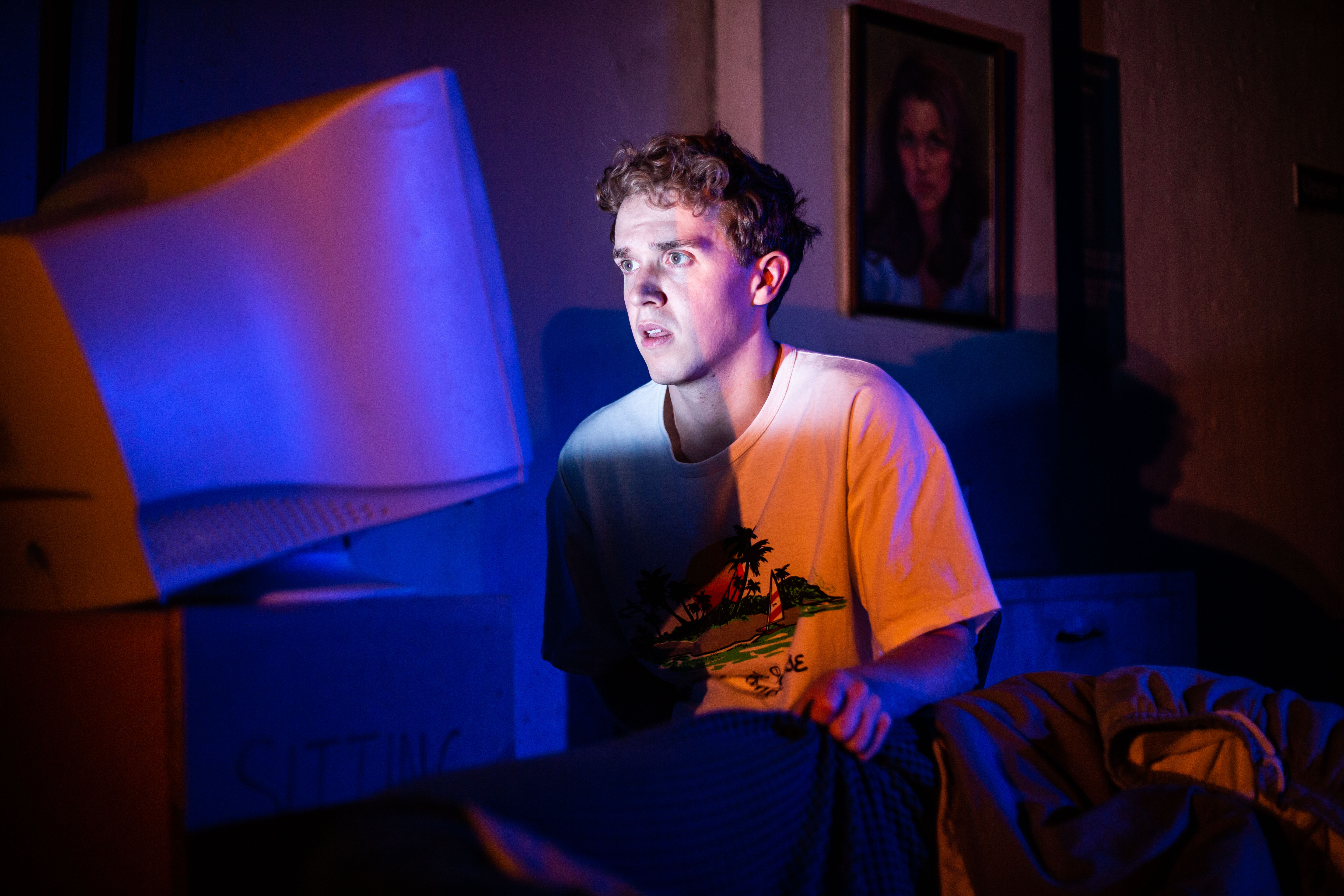End of the world?

Playwright James Corley talks about tapping into his own experiences for his play World's End, which ended a successful run in London this September. It's all about not hiding, sharing and connecting, he says.
I didn't plan on incorporating a stammer into my play World's End. I tend to draw on personal experiences in my writing, so I thought the idea of two boys falling in love over Nintendo 64 would be enough. It was only after digging deeper into what I wanted to say that I realised I had to include something else, something even more personal that I tried for a long time to hide.

World's End is about connection and finding the common ground. Ben, the lead character, feels incapable of connecting with anyone. He's isolated himself. His isolation is exacerbated by his anxiety, repressed sexuality and shyness — and his way of relieving that is staying inside and playing Zelda. It's a classic avoidance tactic: if you stay in, you don't get hurt. But like any coping mechanism, they work until they don't. I should know, I've had a stammer all my life, and avoidance was my go-to weapon of choice.
I didn't stumble upon this awareness. I saw a private speech and language therapist when I was 27 because I was an actor and was fed up stammering my way through auditions. I found the more I tried to avoid it, the more I seized up. I wondered if there was a cure. And even though there wasn't a pill, there was a thing called speech and language therapy. So I went along to my free consultation. It was then I discovered that what I thought was the problem was only the tip of the iceberg — the real issues holding it up were underneath.
Reducing the self-attached stigma
The iceberg theory is how I approach characters in plays. At the start I only show what they want you to see, and then, as the play progresses, I gently remove their masks. Because it’s the stuff underneath that we relate to — their contradictions, quirks and fears. In writing the character of Ben, I knew I had to show how he was more than his perception of himself. As the play unfolds, you witness this character being cruel, kind but also funny — and, yes, he has a stammer, but that is not his overriding feature. No audience member left the show going, "Wow, his stammer was really bad"; instead they talked about his relationship with his mum, the themes, the journey of the characters. But I know how easy it is to define yourself by a perceived affliction. That's what I did. I felt my stammer was all that people took away from me.
What helped me was reframing my relationship with my stammer and sharing it with others. It became about connection... as a playwright, it’s what propels me to write stories.
In seeing a therapist, I got to shine a light on that part of me that I tried to keep secret. Week after week we would go over my triggers: speaking to customers in the café where I worked, repeating myself when someone didn’t catch what I said, even saying my name! We went through every feared situation, explored various exercises and I saw that I could manage. With gentle guidance I eased up on myself a bit; I got to (perish the thought) laugh at myself, see that what I thought was horrendous was actually fine and (sometimes) quite funny. Through my therapist I was relating my fear to someone non-judgemental and kind — two things I hadn’t been to myself — and in the process, the stigma I attached to my stammer lessoned.
'A problem shared is a problem halved' is not just a tired adage: it's an enabling reminder when you’re stuck. My stammer, though not completely gone, is much more infrequent; and when it does come up, I can honestly say I don’t mind; in fact, I quite enjoy it: it's a positive reminder of how far I’ve come. And I didn’t get there on my own. I got there with the help of someone else.
Only connect

A reviewer mentioned how Ben's stammer seemed to ease as the play progressed. I was thrilled about this, as it showed that they too saw his progression. When the play begins, we see him cocooned within the flat's four walls, his only enemy himself. Later, after the unavoidable entrance of his neighbour Besnik, we witness Ben share his stammer in front of him. To Ben it's the end of the world, to Bensik it's endearing. And then as the two fall in love, Ben’s reaction to himself softens, and so too his need to hide.
Everyone's journey with their stammer is different, and I can only be true to mine. What helped me was reframing my relationship with it and sharing it with others. It became about connection, something I feel we are all put on this earth for. As a playwright, it’s what propels me to write stories. Because at the end of the day it all boils down to what my favourite writer E.M. Forster said: "Only Connect".
World's End was produced by Nisha Oza Productions. You can watch the cast talking about the play in this YouTube video and read our review.
If you would like to see what speech and language therapy is available, including NHS and private therapy, as well as courses, see One-to-one Adult Speech & Language Therapy and Adult Group Stammering Courses.
Read more Your Voice articles.
Would you like to write an article? See Submit Something For The Site or email editor@stamma.org for details.

































